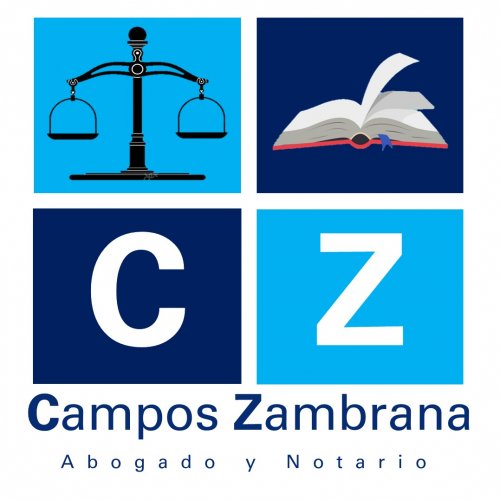Best Drunk Driving Lawyers in Nicaragua
Share your needs with us, get contacted by law firms.
Free. Takes 2 min.
Or refine your search by selecting a city:
List of the best lawyers in Nicaragua
About Drunk Driving Law in Nicaragua
Drunk driving, referred to as "conducir en estado de ebriedad" in Spanish, is a significant legal issue in Nicaragua. The law enforces strict penalties for individuals caught operating a motor vehicle with a blood alcohol concentration (BAC) above legal limits. Given the potential dangers and repercussions associated with drunk driving, Nicaraguan authorities are stringent in their pursuit to curtail these offenses to enhance road safety across the country.
Why You May Need a Lawyer
If you are involved in a drunk driving incident, hiring a lawyer can be crucial for several reasons. They can provide expert guidance on navigating the complex legal system and offer representation in court. Common scenarios where legal help is required include being arrested for driving under the influence, facing license suspension, disputing breathalyzer results, and dealing with accident-related legal claims. A lawyer familiar with local laws can ensure that your rights are protected and that you receive fair treatment during legal proceedings.
Local Laws Overview
Nicaraguan drunk driving laws mandate that drivers maintain a blood alcohol concentration of below 0.05%. For commercial drivers, the limit is stricter. Law enforcement officers are authorized to perform roadside breathalyzer and sobriety tests. If a driver fails these tests, immediate legal actions, such as arrest and vehicle impoundment, can be undertaken. Penalties can include fines, license suspension, community service, or even imprisonment, depending on the severity of the offense and any resulting accidents or injuries.
Frequently Asked Questions
What is the legal BAC limit in Nicaragua?
The legal BAC limit for regular drivers in Nicaragua is 0.05%. For commercial drivers, stricter limits apply.
What happens if I refuse a breathalyzer test?
Refusing to take a breathalyzer test in Nicaragua can result in immediate penalties, including fines and license suspension, and it can be used against you in legal proceedings.
What are the consequences of a first-time DUI offense?
First-time offenders can face penalties such as fines, license suspension, community service, or mandatory attendance in educational programs about the dangers of drunk driving.
Can a DUI conviction affect my criminal record?
Yes, a DUI conviction in Nicaragua can remain on your criminal record, which may impact future employment, travel, and other legal matters.
How can I dispute my DUI charges?
To dispute DUI charges, it is advisable to hire a lawyer who can help challenge the evidence or negotiate for reduced penalties.
Is DUI a criminal or administrative offense?
In Nicaragua, DUI can be treated as both a criminal and administrative offense, depending on the circumstances, such as whether an accident occurred or if there were injuries involved.
Can I lose my driving license after a DUI arrest?
Yes, your license can be suspended or revoked temporarily or permanently, based on the severity of the offense and judicial proceedings.
What should I do immediately after being arrested for a DUI?
Seek legal counsel as soon as possible to understand your rights and the best course of action in handling the situation.
Are there programs to reduce DUI penalties?
Certain educational and community service initiatives may be available that can affect penalty severity for first-time or non-violent offenders. A lawyer can provide guidance on eligibility.
How can a lawyer help me with my DUI case?
A lawyer experienced in DUI law can assist in building a defense, negotiating with prosecutors, and ensuring the protection of your legal rights.
Additional Resources
For further information on drunk driving and legal assistance in Nicaragua, consider contacting local governmental bodies such as the Nicaraguan National Police (Policía Nacional de Nicaragua) or the Ministry of Transportation and Infrastructure (Ministerio de Transporte e Infraestructura). These organizations often provide useful information and may offer guidance or referrals to appropriate legal services.
Next Steps
If you require legal assistance for a drunk driving case in Nicaragua, it is crucial to act promptly. Start by seeking a consultation with a qualified attorney specializing in DUI law. Prepare all pertinent documents related to your case, such as police reports and witness statements, to aid your attorney in developing an effective defense strategy. Maintaining awareness of court dates and compliance with any legal requirements during this process is vital for obtaining a favorable outcome.
Lawzana helps you find the best lawyers and law firms in Nicaragua through a curated and pre-screened list of qualified legal professionals. Our platform offers rankings and detailed profiles of attorneys and law firms, allowing you to compare based on practice areas, including Drunk Driving, experience, and client feedback.
Each profile includes a description of the firm's areas of practice, client reviews, team members and partners, year of establishment, spoken languages, office locations, contact information, social media presence, and any published articles or resources. Most firms on our platform speak English and are experienced in both local and international legal matters.
Get a quote from top-rated law firms in Nicaragua — quickly, securely, and without unnecessary hassle.
Disclaimer:
The information provided on this page is for general informational purposes only and does not constitute legal advice. While we strive to ensure the accuracy and relevance of the content, legal information may change over time, and interpretations of the law can vary. You should always consult with a qualified legal professional for advice specific to your situation.
We disclaim all liability for actions taken or not taken based on the content of this page. If you believe any information is incorrect or outdated, please contact us, and we will review and update it where appropriate.
Browse drunk driving law firms by city in Nicaragua
Refine your search by selecting a city.









